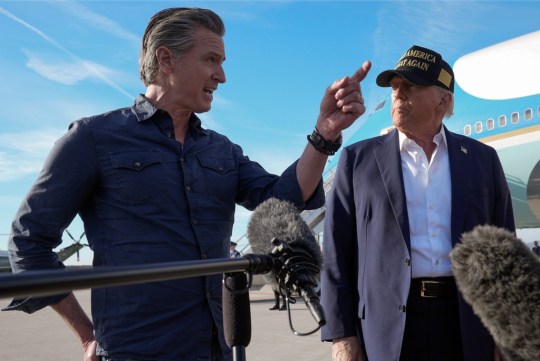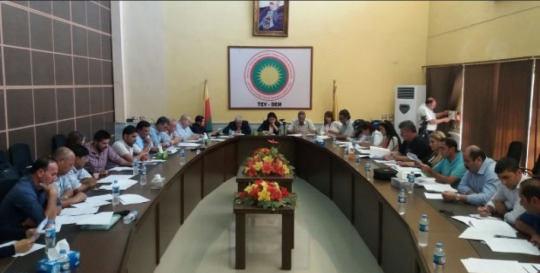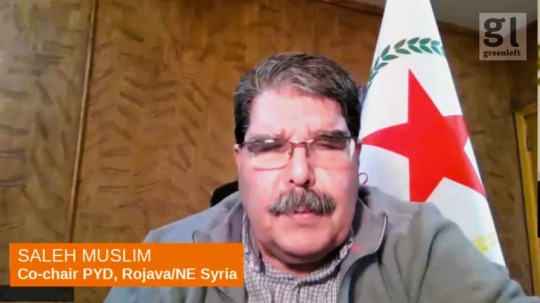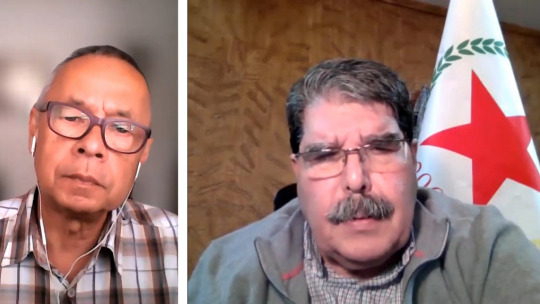#assembly elections live updates
Explore tagged Tumblr posts
Text
Andhra Pradesh Latest News: Political Updates, AP Assembly Election 2024 News | Mango News Telugu
#Andhra Pradesh#Andhra Pradesh Latest News#Andhra Pradesh Political News#AP Assembly Election 2024 News#AP News Live Updates
0 notes
Text
This is a gift article
“In normal times, Americans don’t think much about democracy. Our Constitution, with its guarantees of free press, speech, and assembly, was written more than two centuries ago. Our electoral system has never failed, not during two world wars, not even during the Civil War. Citizenship requires very little of us, only that we show up to vote occasionally. Many of us are so complacent that we don’t bother. We treat democracy like clean water, something that just comes out of the tap, something we exert no effort to procure.
“But these are not normal times.”
I wrote those words in October 2020, at a time when some people feared voting, because they feared contagion. The feeling that “these are not normal times” also came from rumors about what Donald Trump’s campaign might do if he lost that year’s presidential election. Already, stories that Trump would challenge the validity of the results were in circulation. And so it came to pass.
This time, we are living in a much different world. The predictions of what might happen on November 5 and in the days that follow are not based on rumors. On the contrary, we can be absolutely certain that an attempt will be made to steal the 2024 election if Kamala Harris wins. Trump himself has repeatedly refused to acknowledge the results of the 2020 election. He has waffled on and evaded questions about whether he will accept the outcome in 2024. He has hired lawyers to prepare to challenge the results.
Trump also has a lot more help this time around from his own party. Strange things are happening in state legislatures: a West Virginia proposal to “not recognize an illegitimate presidential election” (which could be read as meaning not recognize the results if a Democrat wins); a last-minute push, ultimately unsuccessful, to change the way Nebraska allocates its electoral votes. Equally weird things are happening in state election boards. Georgia’s has passed a rule requiring that all ballots be hand-counted, as well as machine-counted, which, if not overturned, will introduce errors—machines are more accurate—and make the process take much longer. A number of county election boards have in recent elections tried refusing to certify votes, not least because many are now populated with actual election deniers, who believe that frustrating the will of the people is their proper role. Multiple people and groups are also seeking mass purges of the electoral rolls.
Anyone who is closely following these shenanigans—or the proliferation of MAGA lawsuits deliberately designed to make people question the legitimacy of the vote even before it is held—already knows that the challenges will multiply if the presidential vote is as close as polls suggest it could be. The counting process will be drawn out, and we may not know the winner for many days. If the results come down to one or two states, they could experience protests or even riots, threats to election officials, and other attempts to change the results.
This prospect can feel overwhelming: Many people are not just upset about the possibility of a lost or stolen election, but oppressed by a sensation of helplessness. This feeling—I can’t do anything; my actions don’t matter—is precisely the feeling that autocratic movements seek to instill in citizens, as Peter Pomerantsev and I explain in our recent podcast, Autocracy in America. But you can always do something. If you need advice about what that might be, here is an updated citizen’s guide to defending democracy.
Help Out on Voting Day—In Person
First and foremost: Register to vote, and make sure everyone you know has done so too, especially students who have recently changed residence. The website Vote.gov has a list of the rules in all 50 states, in multiple languages, if you or anyone you know has doubts. Deadlines have passed in some states, but not all of them.
After that, vote—in person if you can. Because the MAGA lawyers are preparing to question mail-in and absentee ballots in particular, go to a polling station if at all possible. Vote early if you can, too: Here is a list of early-voting rules for each state.
Secondly, be prepared for intimidation or complications. As my colleague Stephanie McCrummen has written, radicalized evangelical groups are organizing around the election. One group is planning a series of “Kingdom to the Capitol” rallies in swing-state capitals, as well as in Washington, D.C.; participants may well show up near voting booths on Election Day. If you or anyone you know has trouble voting, for any reason, call 866-OUR-VOTE, a hotline set up by Election Protection, a nonpartisan national coalition led by the Lawyers’ Committee for Civil Rights Under Law.
If you have time to do more, then join the effort. The coalition is looking for lawyers, law students, and paralegals to help out if multiple, simultaneous challenges to the election occur at the county level. Even people without legal training are needed to serve as poll monitors, and of course to staff the hotline. In the group’s words, it needs people to help voters with “confusing voting rules, outdated infrastructure, rampant misinformation, and needless obstacles to the ballot box.”
If you live in Arizona, Florida, Georgia, Michigan, Nevada, Ohio, Pennsylvania, or Wisconsin, you can also volunteer to help All Voting Is Local, an organization that has been on the ground in those states since before 2020 and knows the rules, the officials, the potential threats. It, too, is recruiting legal professionals, as well as poll monitors. If you don’t live in one of those states, you can still make a financial contribution.
Wherever you live, consider working at a polling station. All Voting Is Local can advise you if you live in one of its eight states, but you can also call your local board of elections. More information is available at PowerThePolls.org, which will send you to the right place. The site explains that “our democracy depends on ordinary people who make sure every election runs smoothly and everyone's vote is counted—people like you.”
Wherever you live, it’s also possible to work for one of the many get-out-the-vote campaigns. Consider driving people to the voting booth. Find your local group by calling the offices of local politicians, members of Congress, state legislators, and city councillors. The League of Women Voters and the NAACP are just two of many organizations that will be active in the days before the election, and on the day itself. Call them to ask which local groups they recommend. Or, if you are specifically interested in transporting Democrats, you can volunteer for Rideshare2Vote.
If you know someone who needs a ride, then let them know that the ride-hailing company Lyft is once again working with a number of organizations, including the NAACP, the National Council of Negro Women, Iraq and Afghanistan Veterans of America, the National Council on Aging, Asian and Pacific Islander American Vote, and the Hispanic Federation. Contact any of them for advice about your location. Also try local religious congregations, many of whom organize rides to the polls.
Smaller gestures are needed too. If you see a long voting line, or if you find yourself standing in one, report it to Pizza to the Polls and the group will send over some free pizza to cheer everyone up.
Join Something Now
Many people have long been preparing for a challenge to the election and a battle in both the courts and the media. You can help them by subscribing to the newsletters of some of the organizations sponsoring this work, donating money, and sharing their information with others. Don’t wait until the day after the vote to find groups you trust: If a crisis happens, you will not want to be scouring the internet for information.
Among the organizations to watch is the nonpartisan Protect Democracy, which has already launched successful lawsuits to secure voting rights in several states. Another is the States United Democracy Center, which collaborates with police as well as election workers to make sure that elections are safe. Three out of four election officials say that threats to them have increased; in some states, the danger will be just as bad the day after the election as it was the day before, or maybe even worse.
The Brennan Center for Justice, based at NYU, researches and promotes concrete policy proposals to improve democracy, and puts on public events to discuss them. Its lawyers and experts are preparing not only for attempts to steal the election, but also, in the case of a Trump victory, for subsequent assaults on the Constitution or the rule of law.
For voters who lean Democratic, Democracy Docket also offers a wealth of advice, suggestions, and information. The group’s lawyers have been defending elections for many years. For Republicans, Republicans for the Rule of Law is a much smaller group, but one that can help keep people informed.
Talk With People
In case of a real disaster—an inconclusive election or an outbreak of violence—you will need to find a way to talk about it, including a way to speak with friends or relatives who are angry and have different views. In 2020, I published some suggestions from More in Common, a research group that specializes in the analysis of political polarization, for how to talk with people who disagree with you about politics, as well as those who are cynical and apathetic. I am repeating here the group’s three dos and three don’ts:
•Do talk about local issues: Americans are bitterly polarized over national issues, but have much higher levels of trust in their state and local officials. •Do talk about what your state and local leaders are doing to ensure a safe election. •Do emphasize our shared values—the large majority of Americans still feel that democracy is preferable to all other forms of government—and our historical ability to deliver safe and fair elections, even in times of warfare and social strife. •Don’t, by contrast, dismiss people’s concerns about election irregularities out of hand. Trump and his allies have repeatedly raised the specter of widespread voter fraud in favor of Democrats. Despite a lack of evidence for this notion, many people may sincerely believe that this kind of electoral cheating is real. •Don’t rely on statistics to make your case, because people aren’t convinced by them; talk, instead, about what actions are being taken to protect the integrity of the vote. •Finally, don’t inadvertently undermine democracy further: Emphasize the strength of the American people, our ability to stand up to those who assault democracy. Offer people a course of action, not despair.
As a Last Resort, Protest
As in 2020, protest remains a final option. A lot of institutions, including some of those listed above, are preparing to step in if the political system fails. But if they all fail as well, remember that it’s better to protest in a group, and in a coordinated, nonviolent manner. Many of the organizations I have listed will be issuing regular statements right after the election; follow their advice to find out what they are doing. Remember that the point of a protest is to gain supporters—to win others over to your cause—and not to make a bad situation worse. Large, peaceful gatherings will move and convince people more than small, angry ones. Violence makes you enemies, not friends.
Finally, don’t give up: There is always another day. Many of your fellow citizens also want to protect not just the electoral system but the Constitution itself. Start looking for them now, volunteer to help them, and make sure that they, and we, remain a democracy where power changes hands peacefully.
264 notes
·
View notes
Text
WhatMatters
Your guide to California policy and politics

By Lynn La
June 11, 2025
Presented by Californians for Energy Independence, Dairy Cares, First 5 LA and Child Care Providers UNITED

Good morning, California.
CA Senate elects first woman of color as next leader

State Sen. Monique Limón pledges allegiance in the Senate chambers of the state Capitol on Dec. 5, 2022. Photo by Martin do Nascimento, CalMatters
Amid protesters rallying against immigration raids in Los Angeles, and California suing President Donald Trump for mobilizing National Guard troops without state approval, the California Legislature is still in session. Besides releasing a state budget agreement Monday, legislators shook up their leadership in the Senate and pushed for bills. Let’s dive in:
Next Senate leader: After being elected for the position in February 2024, Democratic Sen. Mike McGuire of Santa Rosa will be replaced by Sen. Monique Limón as President Pro Tem starting early next year. McGuire intended to lead the Senate until the end of his term in 2026, but Limón secured enough votes from Democratic lawmakers to take over the position. A union-backed progressive, the Santa Barbara Democrat is the first woman of color to serve in the role. Read more from CalMatters’ Jeanne Kuang.
Relief for renters: Though California lawmakers say that the state’s cost of living is too high, bills that aim to help renters have met varying levels of success this session. One bill that would have capped the fees landlords could charge tenants in addition to rent was shelved until at least next year. A few other bills are still wending through the Legislature, including ones to further regulate landlords. Read more from CalMatters’ Ben Christopher.
Food allergens: The Assembly is considering a bill that would require restaurants to notify customers if any menu items contain food allergens, specifically: milk, eggs, fish, shellfish, tree nuts, peanuts, wheat, soybeans and sesame. Roughly 4 million Californians have food allergies, which can be life-threatening. The California Restaurant Association opposes the bill, arguing that training would be more effective than labeling, and that labeling would create a false sense of security for customers with allergies. Read more from CalMatters’ Kristen Hwang.
Focus on Inland Empire: Each Wednesday, CalMatters Inland Empire reporter Deborah Brennan surveys the big stories from that part of California. Read her newsletter and sign up here to receive it.
Honoring Walters: Join CalMatters columnist Dan Walters and the Sacramento Press Club on June 17 in Sacramento to celebrate Walters’ 50 years covering the Capitol and California politics. He will discuss his expansive career with his longtime editor at The Sacramento Bee, Amy Chance. Register today.
Other Stories You Should Know
Covering the LA protests up close

CalMatters reporter Sergio Olmos while on a field tour with border patrol agents of the El Centro sector in Calexico on Feb. 25, 2025. Photo by Kevin Clancy, Evident
CalMatters’ Sergio Olmos has been on the ground reporting from the L.A. protests since Sunday. While recording footage of the demonstrations, Sergio was hit in the chest by less-lethal munitions fired by Los Angeles Police Department officers. I spoke with him about his experience covering the protests so far, and if you want to keep updated with his reporting, follow him on social media. This interview has been shortened for clarity and length.
What’s it been like these past few days? What are local officers and federal agents doing?
The LAPD, the county sheriff’s and the highway patrol are doing crowd control. Local agencies have been pushing crowds away from the federal buildings, making a bubble around the buildings. National Guard troops are just standing around, mostly. It is a display. No one is storming those buildings.
Trump said he’ll withdraw troops “when there’s no danger.” How long do you think the protests will last?
There isn’t danger towards (officers). This kind of cinema that they have to protect the federal buildings is a casus belli (occasion for war). “We need to protect federal buildings so we sent the National Guard and the Marines.” But the protest started because these immigration agents were going into the communities and snatching people up at Home Depots.
What’s different about these protests about other ones you’ve covered?
On Sunday police fired more less-lethal rounds in a single day of protests than I’ve ever seen. California law enforcements are trained not to shoot these less-lethal rounds at the head and neck area because they can cause severe injuries. And you’re not supposed to use them to disperse people. But the LAPD is using them to move crowds back, which goes against their training.
The protests themselves are not necessarily all that different from other protests I’ve seen, but the federal response to them is way out of proportion. The idea that Marines are needed — that is a choice. But this is not a warzone. It’s a protest. And people are allowed to assemble and disagree with the government.
Could CA really keep its federal taxes?

President Trump (right) listens to Gov. Newsom upon arrival on Air Force One at Los Angeles International Airport in Los Angeles on Jan. 24, 2025. Photo by Mark Schiefelbein, AP Photo
In addition to tussling over the protests in L.A., Trump and Gov. Gavin Newsom have recently renewed their ongoing disagreement over withholding federal funds. Over the weekend the federal administration considered wide-ranging funding cuts to the state in response to what it sees as California’s lack of compliance with the president’s executive orders.
Newsom, in turn, publicly weighed the idea of withholding federal taxes, citing a study that found that California paid more than $83 billion in federal taxes than it received from the federal government in 2022.
But how plausible is that notion, really?
As CalMatters’ Levi Sumagaysay explains, several tax experts she spoke to said Newsom’s suggestion was a “vague” threat, and that residents and businesses pay state and federal governments directly when they file their income taxes. Californians contribute the most of any state in federal taxes: In 2023-24 the state paid $806 billion, or nearly twice as much as Texas.
Read more here.
And lastly: LA’s police complaint rule; homeless agency under fire

Officers with the Los Angeles Police Department at an active crime scene outside a Superior Grocers in Los Angeles on Dec. 7, 2024. Photo by Mark Abramson for CalMatters
The California Supreme Court is reviewing a policy that requires people to affirm that false complaints against LAPD officers can lead to prosecution. CalMatters’ Nigel Duara and video strategy director Robert Meeks have a video segment on why the city of L.A. argues the policy violates free speech rights as part of our partnership with PBS SoCal. Watch it here.
And check out another video by CalMatters’ Marisa Kendall and Robert about why L.A. County is dissolving its joint homeless agency with the city. Watch it here.
SoCalMatters airs at 5:58 p.m. weekdays on PBS SoCal.
California Voices
CalMatters columnist Dan Walters: State legislative leaders say their budget plan is “a fiscally responsible strategy,” but it would actually put the state in an even deeper hole.
CalMatters contributor Robert Greene: The situation in L.A. underscores how Trump views “the rule of law” as a prop — to be deployed or discarded for political reasons to satisfy political and personal goals.
Policies to deport immigrants or strip them of public benefits harm vulnerable communities — but these actions also come at a high political price, writes Kevin R. Johnson, professor of public interest law and Chicano studies at UC Davis.
Other things worth your time:
Some stories may require a subscription to read.
CA asks court to stop National Guard, Marines from patrolling LA streets // KQED
LA mayor imposes curfew on downtown following increased nighttime violence // AP News
Trump’s mobilization of troops in LA to cost Americans at least $134M, Hegseth says // The Guardian
How the federal immigration raids could disrupt CA’s economy // Los Angeles Times
DHS secretary sought military arrests and drones in LA in leaked letter // San Francisco Chronicle
CA Senate GOP leader Jones: Newsom should ‘absolutely not’ be arrested // Newsweek
Fake images and conspiracy theories swirl around LA protests // The New York Times
How will the Sacramento region pay for Proposition 36 drug treatment programs? // The Sacramento Bee
Blocked by GOP and Trump, CA pivots in clean-air fight // The Wall Street Journal
Trump administration sues Oakland coffee shop for alleged discrimination against Jewish people // San Francisco Chronicle
See you next time!
Tips, insight or feedback? Email [email protected]. Subscribe to CalMatters newsletters here. Follow CalMatters on Facebook and Twitter.
About Us· How We're Funded· Subscribe· Donate
CalMatters 1017 L Street #261 Sacramento, CA 95814 United States
5 notes
·
View notes
Text
Live Maharashtra Assembly Results 2024 | Maharashtra Election Result Website
Search the updated booth-wise election results. Maharashtra Election Result is your source for the corroborated data of the 2024 Vidhan Sabha elections.
#ग्रामपंचायत निवडणूक मतदार यादी#महाराष्ट्र विधानसभा निवडणूक निकाल २०२४#Maharashtra Election Result 2024#Number of Voters in Maharashtra#Maharashtra Election Data
2 notes
·
View notes
Text
The newly elected 51st National Assembly of Bulgaria convened with the registration of 234 deputies. Silvi Kirilov, from the "There Is Such a People" (TISP) party, opened the session with a speech acknowledging the complex and dynamic political landscape both domestically and internationally. He emphasized the need for sober analysis of the country's political, economic, and social challenges. Kirilov expressed optimism, stating that the Bulgarian parliament could overcome the difficulties if political parties prioritize the national interest over narrow partisan goals. He concluded with confidence in the parliament's ability to make pragmatic decisions, wishing the 51st National Assembly success.
Toma Bikov, a member of GERB, addressed the session, emphasizing that the recent elections had reshaped Bulgaria’s political system. He noted that GERB remained the dominant force and that forming a stable government without the party would be impossible. He made it clear that GERB was ready to seek support and make necessary compromises but would not accept any attempt to undermine the voters' will. Bikov also reiterated GERB's position on governance, proposing a regular government with a four-year mandate and clear responsibility.
Nikolai Denkov of WCC-DB warned that, for the first time in 35 years, democracy in Bulgaria was at risk. He linked this danger to the attacks on the country’s democratic foundations, highlighting the control over elections and political institutions for selfish purposes. Denkov criticized the actions of Peevski and Borissov, claiming their aim was to downplay the electoral violations and pressure lawmakers and citizens into accepting the situation.
Kostadin Kostadinov, leader of "Revival," addressed the assembly, saying, "Dear fellow citizens, we must all prioritize being Bulgarians above all else. Let's reflect on the outcome of the October 27 elections. Nearly 1 million of you either sold your vote or were manipulated into voting, either by local power brokers or criminal groups operating within Parliament. Another 4 million of you chose not to vote, indicating a lack of interest in Bulgaria's future. I would like to thank the 325,000 supporters of 'Revival,' as it is on their efforts that the fight for Bulgaria's renewal rests."
"DPS - New Beginning" deputies did not address the parliament and left the building, with the leader, Delyan Peevski, instead stepping out to speak with some of the protesters outside.
Atanas Zafirov from the Bulgarian Socialist Party (BSP) remarked, "Dear colleagues, many of you have stubbornly clung to your own version of the truth—some of you didn’t even speak. Your stance is driven by the fear of losing your voter base, without considering the broader interests of the Bulgarian people. This is what is pushing people back into the streets. I call it party selfishness, and you all claim that we must put an end to it. For us, ending party selfishness means that each of us should be willing to make some personal sacrifices for the common good, and the common good is unity. Corruption is the absolute boundary—an issue that cannot be ignored or dismissed. If we head to new elections, what exactly will we achieve?"
Jevdet Chakarov from the "Alliance for Rights and Freedoms" (Dogan faction) expressed his concern during the first session of the 51st National Assembly, highlighting the challenges the country is facing. He pointed to the ongoing economic crisis, low living standards, and political instability, all of which complicate the formation of a stable government. Additionally, Chakarov emphasized the widespread public mistrust following the October 27 elections, citing serious legal violations, falsifications, and corporate vote manipulation. He reiterated the party's support for a declaration from WCC-DB to isolate Delyan Peevski, viewing it as a step toward restoring the rule of law and reducing the influence of oligarchic interests. Chakarov also proposed the creation of a temporary commission to investigate Peevski's role in the Corporate Commercial Bank and the Bulgarian Development Bank failures and his influence on the judiciary.
Stanislav Balabanov of TISP criticized the political, financial, and social turmoil in the country, stating that the nation is in a state of complete chaos, with most institutions collapsing. He argued that while the country's problems, such as healthcare and education reforms, and the demographic crisis, should be the focus, the political agenda is instead dominated by power struggles over who controls key institutions. Balabanov lamented that the political decisions being made are not addressing the real issues but rather are part of a broader effort to consolidate power.
Radostin Vasilev from MECH thanked the 112,000 Bulgarian citizens who supported his party in the recent elections. However, he expressed regret over the widespread vote manipulation, which he believes undermined the legitimacy of the elections and, by extension, the legitimacy of the current parliament.
Acting Prime Minister Dimitar Glavchev expressed hope for a regular and stable government to resolve the political crisis. He distanced himself from the ongoing coalition negotiations, stating that the formation of coalitions was not his responsibility. When asked about the protests in Sofia, Glavchev acknowledged the right to protest, as long as it did not disturb others.
The election of the new Speaker of the Parliament remains uncertain, with several parties nominating candidates. GERB has proposed Raya Nazaryan, while "Revival" has put forward Petar Petrov. "BSP - United Left" nominated Natalia Kiselova, an expert in constitutional law. There is also speculation whether Silvi Kirilov will be nominated for Speaker by "There Is Such a People." Meanwhile, MECH, DPS - New Beginning, and APS have not put forward any candidates for the position.
The session took place amidst seven protests in Sofia, the majority of which were concentrated in the so-called triangle of power.
4 notes
·
View notes
Text
French Politics Update
Since the 2024 French elections earlier this year, we left off with a more balanced National Assembly. Left-wing politicians became the highest population at 188 seats with centrist Emmanuel Macron still the president. The centrist party is not far behind with 161 seats and the right-wing party with 142.
Many networks at the time discussed the expectation of a hung parliament, as no one party holds the 289-seat majority.
Some things stay the same. In July, the National Assembly voted to keep centrist party member Yaël Braun-Pivet as speaker, winning by 13 votes. Additionally, many people have called for Macron to step down as President, but he will likely stay for the rest of his term until 2027.
New PM
On the other hand, there have been major changes. Prime Minister Gabriel Attal resigned in July, and was replaced by Michel Barnier in September. He is a conservative, the leader of the 2016-2019 Brexit negotiation, and his appointment was met with much criticism from the left-wing parties.
Days after his appointment, over 100,000 people participated in protests across France. Many people view President Macron’s PM choice as disruptive to democracy, as the PM is most often chosen from the dominant National Assembly party.
Macron states that he made this choice based on the belief that Barnier seemed the most capable of dealing with political deadlocks, as is expected of the Parliament with no party holding majority.
I have to wonder, though, if this was also out of spite for the left-wing parties winning more seats than his centrist party. Barnier’s politics are expected to rely on joint support from the centrist and conservative parties. If the right or center opposes him on anything, he almost certainly will face loss after loss with his proposed policies. Will this lead France backward after the left finally gained some political power?
Barnier’s Address
Barnier delivered his first parliamentary address on Tuesday, October 1st. Summarily, he emphasized the hazard of French finances and debts, and the environment.
France is more than 3 trillion euros in public and environmental debt, which Barnier addresses first. His goal is to bring the deficit down from 6% of the national GDP to 5% in 2025, with the goal of under 3% by 2029.
His outline for achieving this is reducing spending, being more efficient in government spending (addressing corruption and unjustified spending), and taxes. He phrases higher taxes as a temporary measure, and states that large companies as well as the richest and wealthiest French people will be asked for exceptional contributions.
Barnier also addresses environmental debt. He plans to continue reducing GHG emissions, and for France to be more active in the EU and in the Paris Agreements, which push for countries to collectively act against climate change. He also mentions encouraging industry transitions in energy and recycling, encouraging nuclear energy development, and developing renewable resources of energy more, like biofuels and solar energy.
He has also conceived of a large national conference to act on the matter of water, the scarcity of which is an imminent issue for France.
Additionally, he plans to propose a yearly day of citizens consultations. In his idea, doors will be open for citizens for people of all levels of government to ask questions and start discussions and debates on various topics.
Another noteworthy statement from Barnier is that the pension reform bill voted on in 2023 might have to be changed, which received a loud reply from the audience.
As someone living in a country where an entire political party is built on denying factual evidence and realities, it is surprising to hear someone who does not deny climate change, and calls for equitable taxes to address debt.
About 30 minutes into his address, though, New Caledonia comes up. This is more in line with expectations of conservatives. New Caledonia is still a colonized territory of France, and a recent bill from Macron was going to disadvantage native Kanak people for the advancement of French loyalists on the archipelago. After fatal protests, the bill has been suspended before ratification, likely to be readdressed in 2025.
Also in conservative spirit, Barnier calls for stricter immigration policies in effort to meet “integration objectives”. France faces a cost-of-living crisis and an affordable housing shortage that has buttressed the right’s stance on needing stricter border measures.
Le Pen Trial
Also straining politics, especially for right-wing support, is recent news about popular right-wing figure Marine Le Pen.
On September 30th, Le Pen faced charges of embezzling European Parliament money. The right-wing party Rassemblement National is accused of filing false employee records in order to improperly use funds to pay members of the party. Le Pen is one of many senior party members involved in the alleged embezzlement.
This trial is expected to go on for seven to nine weeks, so the final outcome is some time away. But for now we can expect this will have negative impacts if Le Pen still vies for presidential election in 2027. It will likely also decrease citizen’s trust in the conservative party’s ability to make responsible economic decisions.
If found guilty, Le Pen and the other defendants could face up to ten years in prison and lose the eligibility to run for office.
After the 2024 shock vote instigated by President Macron, the French National assembly gained a left-leaning majority, though not enough for an automatic 289-vote majority. In most cases, this would mean a left-wing Prime Minister as well as a left-wing president, though that’s because the presidential vote is usually shortly after that of the national assembly.
Contrarily, Macron went with a conservative candidate that he believed to be stronger for the job. This increases the political unrest in the country, and increases the likelihood of delays and blockages in legislation development.
While the conservative Prime Minister has stated many intentions that people in the U.S.A. might call left-leaning, regarding climate change and tax targets, his appointment has upset many. His views on immigration, especially, contrast with most left-wing groups who want integration and safety for others. Overall, this decision from Macron calls into question his loyalty and dedication to the wants of the French people.
Additional Resources
1. New Prime Minister
2. Barnier on Borrowed Time
3. Le Pen on Trial
4. Barnier Address
5. Barnier Address Summary
#france#french politics#prime minister#emmanuel macron#french election#article#research#resources#environment#climate change#news#renewable energy#long post#yeah I look into France because I studied French and it's interesting#but it is indeed a colonial power that still enforces rule over other people#Michel Barnier#marine le pen#Going to look into actual crime statistics and immigration next#since that's all misinformation in the states
3 notes
·
View notes
Text
Poetics of Black Becoming: A Manifesto/Syllabus by 7vyn
A Prelude:
i am 7vyn. that is a self-given name that i claim in exploration of my gender and its manifestation of xpression through the digital. 7vyn is dislocated and pixelated embodiedment. a dis-spirit(ed) alien(ated) straddling human and monstrous livlihood. as 7vyn and thru this account, i hope to host a pilot of a manifesto/syllabus that crafts a tangible imaginative world that centers decolonial praxis. i wanted to create a place where texts central to themes of interest for me could live together on the same throughline to think with, around, and beyond each other.
why syllabus?
this is a tradition that came long before my attempts at uniting the scholarly and the activist for more fluid models of knowledge production and sharing. some considerations that made the syllabus a useful tool for me include:
proclamation, this syllabus is not making an argument as much as it is just saying, uniting threads of information. this syllabus is not engaged in any larger debate as much as it is a declaration of a more considerate, passionate, just world and its maintainance and flourishing needs. this syllabus/manifesto is the bare bones of a lineage of thought greater than my own wing-span, so rather than declare and leave thought to the wind as many in the tradition of manifesto do, i insist on the collabortative intention and nature of this piece. as in, this syllabus can be added to. this syllabus will remain malleauble and engaged.
invitation to learning, this syllabus/manifesto is creating a sort of index library or guide map of thinking toward decolonization in a Black trans-cyber-anarchafeminist tradition. this manifesto is uninterested in interacting with and sharing knowledge in such a way designed to exlude nonmembers of academia. so, i use my institutional access to create knowledge beyond academic spaces, straddling the line between academia and activism and daring myself and other producers of knowledge and culture to be intentional about the the work we do to prioritize and care for our audiences of intention. because this is a collaborative work, i most aim for Black transfeminists with specific niches related to the digital and decolonization (broadly) or even beyond to progress and advance the thinking of this syllabus. i encourage all others to engage this manifesto/syllabus as a learning tool.
accessible. this manifesto does not privilege knowledge. by this i mean, i am not the owner of this knowledge, i am merely an assembler, a curator. i also reject bullshit academic vernacular because i believe that is a method of exclusion and i want everyone, even people this is not useful for to at least be able to meaningfully engage with the information offered. i elect to spark enthusiasm and curiousity, not headaches.
translatable. because i think of this manifesto/syllabus as a useful learning tool, i believe that it should also have a flexibility that supports it as a learning model. this means i currently understand the syllabus/manifesto as a zine, twine game, installation, digital exhibition, and on a decentralized platform. these are initiatives i hope to take up later in the life of the manifesto/syllabus, hopefully in direct collaboration with other scholars, organizations, activists, cultural & knowledge workers, etc.
this is a living document + post. i will return as needed to update information, offer specificity, add resources, activities, prompts, and more. this post will serve as the original and masterlist. below you can gain access to some preliminary writing on the sources I have decided to include, key concepts I am drawing from them, and why they are useful to my thinking (and potentially yours too!). as i may have stated earlier in this post, this is just the pilot of this project for me. so what you see as of now (5/17/2024) is just the bare bones of something i will be building outward as long as i need to.
Solidarity (tag: #solid, where strength lies)
Accomplices Not Allies by Indigenous Action
Insurrectionary Mutual Aid by Curious George Brigade
Power Makes Us Sick Issue #3
Resistance (tag: #push/pull)
My Gender is Marronage by Nsambu Za Suekama/Bl3ssing
Them Goon Rules by Marquis Bey
Rave:n by Kelela
Sabotage (tag: #set aflame)
Random Acts of Flyness by Terrence Nance
The Poetics of Difference by Mecca Jamilah Sullivan
Play With The Changes by Rochelle Jordan
thank you for reading! my placemaking & writing on process does not end here, so stay tuned!
with care,
7vyn
5 notes
·
View notes
Text
For those who want to know more about Walz from Washington Post. And can't get away from the paywall.
By Tyler Pager,
Amy B Wang and
Sabrina Rodriguez
Vice President Harris has chosen Minnesota Gov. Tim Walz to be her running mate, opting for a former high school teacher and Midwestern Democrat to complete a newly assembled presidential ticket, according to three people familiar with the pick, who spoke on the condition of anonymity to discuss a decision that is not yet public.
Cut through the 2024 election noise. Get The Campaign Moment newsletter.
The choice of Walz, 60, creates a ticket that many Democrats have said would be politically beneficial. Harris, 59, who is Black and Indian American and spent much of her career in deep-blue California, chose from a list of finalists populated by White men, including Walz, who have represented more competitive swaths of the country.
The selection culminates an increasingly intensive process in recent days, as the Harris team narrowed down the prospects and various factions of the Democratic Party lobbied for their favorites. Over the weekend, Harris interviewed three finalists: Walz, Pennsylvania Gov. Josh Shapiro and Arizona Sen. Mark Kelly.
Compared with some of the other prospects who Harris considered as potential running mates, Walz is less well-known and has faced less scrutiny on the national stage.
Skip to end of carousel
2024 presidential election
Vice President Harris has told allies that he she has chosen Minnesota Gov. Tim Walz to be her running mate, according to three people familiar with the pick. Follow live updates.
Trump and Harris have officially secured their party’s presidential nominations. Trump chose Sen. JD Vance (R-Ohio) as his running mate. We broke down options for Harris’s vice-presidential pick.
(The Washington Post)
Check out how Harris and Trump stack up according to The Washington Post’s presidential polling averages of seven battleground states.
Sign up for The Campaign Moment, reporter Aaron Blake’s guide to what you really need to know about the 2024 election.
A second-term governor and chair of the Democratic Governors Association, Walz does not hail from a traditional battleground state — Minnesota has supported a Republican presidential candidate only once since 1960. But Walz’s credentials as a veteran and gun owner who previously represented a Republican-leaning, rural part of Minnesota in Congress could help Harris appeal to working-class White voters who have turned away from Democrats and helped fuel Donald Trump’s political rise.
Follow Election 2024
Walz catapulted onto the national radar as it became clear that Harris was considering him for the ticket after Biden ended his reelection bid July 21. He repeatedly criticized Trump and other Republicans as “weird” in cable news appearances, an unusual formulation that attracted attention. Other Democrats followed with the same line of attack, which appeared to strike a nerve in some Republicans, who have felt compelled to push back.
Walz now faces the urgent task of introducing himself to the country with about three months left before an election that has already been rocked by historic turmoil. The political tests ahead include a potential debate against Sen. JD Vance (R-Ohio), whom Trump tapped as his running mate in July.
Harris will hold her first rally with Walz on Tuesday in Philadelphia, the first stop in a four-day tour of battleground states that includes visits to Michigan, Wisconsin, Nevada and elsewhere.
Harris’s choice of a running mate was among the most closely watched decisions of her fledgling campaign, as she sought to bolster the ticket’s prospects for victory in November and rapidly find someone who could be a governing partner. In picking Walz, she has selected a seasoned politician with executive governing experience, and signaled the importance of Midwestern battleground states such as Wisconsin and Michigan.
Walz’s foray into politics came later in life: He spent more than two decades as a public school teacher and football coach, and as a member of the Army National Guard, before running for Congress in his 40s. In 2006, he defeated a Republican to win Minnesota’s 1st Congressional District — a rural, conservative area — and won reelection five times before leaving Congress to run for governor.
Walz was first elected governor in 2018 and handily won reelection in 2022. He emerged publicly as one of the earliest names mentioned as a possible running mate for Harris, and in the ensuing days he made the rounds on television as an outspoken surrogate for the vice president.
“These are weird people on the other side. They want to take books away, they want to be in your exam room. … They are bad on foreign policy, they are bad on the environment, they certainly have no health-care plan, and they keep talking about the middle class,” Walz told MSNBC in July. “As I said, a robber baron real estate guy and a venture capitalist trying to tell us they understand who we are? They don’t know who we are.”
More on Tim Walz
Tim Walz’s journey from high school football coach to VP candidate
Harris has chosen Minnesota Gov. Tim Walz as VP pick
Could Tim Walz go from teaching history to being part of it?
Walz also has faced criticism from Republicans that his policies as governor were too liberal, including legalizing recreational marijuana for adults, protecting abortion rights, expanding LGBTQ protections, implementing tuition-free college for low-income Minnesotans and providing free breakfast and lunch for schoolchildren in the state.
But many of those initiatives are broadly popular. Walz also signed an executive order removing the college-degree requirement for 75 percent of Minnesota’s state jobs, a move that garnered bipartisan support and that several other states have also adopted.
“What a monster. Kids are eating and having full bellies, so they can go learn, and women are making their own health-care decisions,” Walz said sarcastically in a July 28 interview with CNN when questioned on whether such policies would be fodder for conservative attacks, later adding: “If that’s where they want to label me, I’m more than happy to take the [liberal] label.”
Walz also spoke at a kickoff event in St. Paul for a Democratic canvassing effort, casting Trump as a “bully.”
“Don’t lift these guys up like they’re some kind of heroes. Everybody in this room knows — I know it as a teacher — a bully has no self-confidence. A bully has no strength. They have nothing,” Walz said at the event, sporting a camouflage hunting hat and T-shirt.
Walz has explained that he felt some Democrats’ practice of calling Trump an existential threat to democracy was giving him too much credit, which prompted his decision to denounce the GOP nominee instead as being “weird.”
“I do believe all those things are a real possibility, but it gives him way too much power,” Walz said on CNN’s “State of the Union” regarding the Democrats’ rhetoric. “Listen to the guy. He’s talking about Hannibal Lecter, shocking sharks, and just whatever crazy thing pops into his mind.”
Walz was rewarded for his willingness to attack the Trump-Vance ticket and his embrace of the liberal label, earning the endorsement of a coalition of left-leaning groups that touted him as “a credible and respected voice that has a track record of winning over and exciting an electorate, especially the ability to turn out young voters, immigrants, and independents in swing states.”
If Walz is elected vice president, under state law, Minnesota Lt. Gov. Peggy Flanagan (D) would assume the governorship for the rest of his term. Minnesota Senate President Bobby Joe Champion, a Democrat, would become lieutenant governor.
In picking Walz, Harris passed over several other Democratic governors who were under consideration, including Shapiro, Andy Beshear of Kentucky and J.B. Pritzker of Illinois.
Harris faced an effective deadline of Aug. 7 to select a running mate. That is when Democratic National Committee officials had hoped to formally nominate its ticket to avoid running afoul of ballot qualification deadlines in various states.
Amy B Wang, Michael Scherer, Sabrina Rodriguez and Patrick Svitek contributed to this report.
Election 2024
Vice President Harris has told allies that he she has chosen Minnesota Gov. Tim Walz to be her running mate, according to three people familiar with the pick. Follow live updates.
Kamala Harris: Harris has officially secured the Democratic presidential nomination. She has narrowed her search for a running mate to six finalists, according to two people familiar with the process.
Presidential polls: Check out how Harris and Republican Donald Trump stack up according to The Washington Post’s presidential polling averages of seven battleground states.
Trump VP pick: Trump has chosen Sen. JD Vance (Ohio) as his running mate, selecting a rising star in the Republican Party. But Vance has had a challenging start as the GOP’s vice-presidential nominee, leaving the Trump campaign to try to clean up his controversial past comments.
Election 2024
3 notes
·
View notes
Text




CorpMedia #Oligarchs #MegaBanks vs #Union #Occupy #NoDAPL #BLM #SDF #DACA #MeToo #Humanity #FeelTheBern
JinJiyanAzadi #BijiRojava “Communal elections the first step towards Free Syria” [UPDATES]
Democratic Northern Syria Federation Executive Council described the communal elections as the first step towards Free Syria, and said they are now preparing for the second stage which is the election of municipality, district and canton assemblies…

RELATED UPDATE: 8th turbine in Euphrates Dam on probation

RELATED UPDATE: The seventh turbine returns to work in the Euphrates dam
https://sdf-press.com/en/2018/06/the-seventh-turbine-returns-to-work-in-the-euphrates-dam/

RELATED UPDATE: Turkey seizes Euphrates water, cutting electricity in northeast Syria

RELATED UPDATE: Welcome No More: How Turkey Targets Increasingly Vulnerable Syrians

RELATED UPDATE: 'Jin, Jiyan Azadî' conference in Rome

RELATED UPDATE: WATCH Rojava revolutionary leader warns escalation could lead to World War III

RELATED UPDATE: WATCH PYD’s Saleh Muslim on escalating Middle East conflict, Rojava revolution

RELATED UPDATE: Seventy-minute footage of the revolutionary guerrilla operation in Zap
FURTHER READING:
10 notes
·
View notes
Text
The only thing I can add to this is there are alot of machines like this out there in all kinds of industries. My only experience, we have a Lazer cutter at my work. When it was brand new factory made this big fella ran on punch cards. As in the code that you input into this machine so it knew where to cut was made by taking a piece of card stock like an old school (bush vs gore) election ballot, and using a fancy hole punch to make fun patterns and then you put into the machine and that was how it knew what to do. We are talking early computing. Before dos. This machine has been updated a few times. The most we have been able to upgrade and retrofit it, is windows 95. It can't talk to a newer operating system. We have to back convert it through 3 computers to make files for this machine to run. Heaven forbid in the conversion something ends up off. We have to maintain 3 out of service computers to keep this machine running. This machine is still made, by the same company. (We pay a retired employee from that company to work on this machine and it's slightly newer buddy who we got to windows 10. Cause he lives in town.) Brand new version is 500k and more powerful. We don't need more power (we don't want that added electric bill either.) and we don't have a million sitting around for new machines we are a small factory. We got these machines and got them up and running for 100k. A tenth of the cost. It keeps them out of land fills, it keeps them working towards lowering their carbon cost of manufacturing them. They allow our factory to to keep more assemblers employeed. Forcing people to keep buying newer versions of things that work just fine is an utter waste over digital code.
abandonware should be public domain. force companies to actively support and provide products if they don't wanna lose the rights to them
140K notes
·
View notes
Text
Real-Time Insights into Andhra Pradesh Politics
Political News from AP Telugu is essential for informing Andhra Pradesh's residents about any significant political developments occurring around the state. The state's politics are constantly changing due to a dynamic and competitive political environment that includes groups like the Telugu Desam Party (TDP), Jana Sena, BJP, and the YSR Congress Party (YSRCP). Telugu-language political coverage makes politics more approachable and interesting for all facets of society by guaranteeing that the public receives news, opinions, and analysis in the language they are most familiar with.

Current Leadership Movements and Party Activities
High-profile campaigns, revolving coalitions, and robust public engagement are hallmarks of Andhra Pradesh politics. Minute-by-minute coverage of party leaders' public meetings, news conferences, roadshows, and rallies is provided by AP Political News Telugu. Every political event, whether it's a TDP padayatra or a YSRCP charity push, is covered with speeches, real-time images, and professional commentary. The media keeps the public informed about their elected officials so they may assess their promises and performance.
Election-Related News and Public Awareness
AP Political News Telugu emerges as the most popular information source throughout election seasons, whether they are for local body, Lok Sabha, or assembly elections. It offers everything from election results and voter participation data to candidate announcements, polling dates, and manifesto releases. Voters may use these updates to keep informed about local politics and make well-informed choices. In order to encourage political literacy among the general population, news portals and television networks often hold public discussions and political interviews.
Legislative developments and government policies
AP Political News Telugu covers administration and legislative advancement in addition to electoral politics. The most recent state assembly laws, budgetary announcements, ministerial decisions, and the execution of important government initiatives are all covered. It enables individuals to comprehend how policies impact everything from infrastructure development and healthcare to farmer welfare and education. This kind of journalism educates the public and holds the government responsible.
Disputes, Conflicts, and Political Responses
In Andhra Pradesh, headlines are often dominated by political issues, inter-party conflicts, court cases, and sudden resignations. With the help of professional analysis and popular response, Telugu news outlets provide real-time coverage of these major events. When significant events occur, including changes in leadership or well-publicized investigations, AP Political News Telugu makes sure that readers and viewers get thorough, objective, and timely information.
Bringing the Telugu Diaspora Together
Many Telugu-speaking individuals who reside overseas continue to be very interested in Andhra Pradesh politics. NRIs may easily monitor the state's political situation from anywhere in the globe thanks to AP Political News Telugu platforms. They may keep in touch with home and learn how political choices may affect their families, homes, and future investments by using live-streamed material, smartphone applications, and internet news portals.
In conclusion
Political News from AP For the people of Andhra Pradesh, Telugu is an essential component of democratic involvement and goes beyond just being a news section. Telugu political news outlets provide thorough coverage of elections, public opinion, party politics, and government performance, enabling citizens to remain informed and actively participate in determining their state's destiny. Telugu-language political journalism is the voice that reflects popular interest, amplifies accountability, and enhances democratic engagement in an area where politics is a major part of daily life.
0 notes
Text
What’s happening with LGBTQ+ rights in Russia?
On November 30, the Russian Supreme Court granted the Justice Ministry’s request to ban the “international LGBT movement” as an “extremist organization.” According to the Justice Ministry, which filed its lawsuit on November 17, the so-called “LGBT movement’s” activities showed “signs and manifestations of an extremist orientation, including the incitement of social and religious discord.”
Meduza first published this analysis on November 17. It was updated on November 30 after the Supreme Court’s decision.
Russian authorities have been discriminating against and persecuting LGBTQ+ people for many years. In 2013, Russia banned “gay propaganda” among minors, and in 2022, they passed a law prohibiting “propaganda of non-traditional sexual relations and pedophilia” among people of all ages. Bookstores and libraries removed books affected by the law from their shelves, and mentions of same-sex relationships were cut from TV shows and games. Those who didn’t comply faced fines.
In July 2023, Putin signed a law banning “gender change,” which prohibits both changing gender markers in passports and preforming gender-affirming surgeries. People who’ve already changed the gender marker in their passports aren’t allowed to adopt children.
2
How does the Supreme Court define the ‘LGBT movement’?
We don’t know. Obviously, there’s no such thing as an “international LGBT movement” that was somehow “operating” in Russia.
Valeria Vetoshkina, a lawyer for the human rights group Department One, told Meduza that there’s no such organization registered in Russia and no documentation that would identify a “single-entity” LGBTQ+ movement.
(A group of activists and human rights advocates did register an organization under the name “International LGBT Movement” on November 28, but they did this in an attempt to thwart the Justice Ministry’s strategy; when the ministry filed its lawsuit on November 17, there was no such entity.)
3
Can they really ban such an abstract structure?
Yes — there have already been similar instances in Russian judicial history.
In August 2020, the Supreme Court designated the AUE movement as an “extremist organization.” The General Prosecutor then announced that “participants in the AUE movement committed extremist offenses and mass riots.”
In February 2022, the Supreme Court designated the “Columbine international youth movement” as a terrorist organization. The hearing wasn’t open to the public, since “the case contained information related to state secrets.”
4
So, the Justice Ministry can just invent ‘extremist’ organizations?
Theoretically, no.
LGBTQ+ rights lawyer Max Olenichev, who collaborates with Department One, notes that the federal law on “countering extremist activity” only allows structures that actually exist to be recognized as extremist. A public association may be unregistered, but for a movement to exist, it has to meet three criteria:
holding a founding assembly
approving a charter
electing governing bodies
Since the “international LGBT movement” doesn’t exist, it’s obvious the Justice Ministry can’t present evidence that it meets the necessary criteria, says Olenichev.
5
What were the Justice Ministry’s arguments in court anyway?
Unfortunately, we don’t know. Just like in the case of “Columbine,” the hearing wasn’t open to the public. “The decision won’t be published and the lawsuit also won’t be available,” explains lawyer Valeria Vetoshkina.
Another lawyer who spoke to Meduza under the condition of anonymity brought attention to the case number — AKPI23-990c:
By all accounts, it’s classified. Classified cases end with a “c.” So we won’t even find out the reasons why the “LGBT movement” was declared extremist.
6
So now, will LGBTQ+ people who don’t hide their sexual identity be considered extremists and be prosecuted for it?
Yes, this is more than likely, according to lawyers who spoke with Meduza. One lawyer, who wished to remain anonymous, says that since the Supreme Court considers “participation in the activities of an extremist organization” to be any “deliberate actions aimed at achieving [its] goals,” meaning any public LGBTQ+ activism could qualify.
Lawyer Max Olenichev says that if a person positions themselves as an LGBTQ+ activist, the authorities may start to pay increased attention to them: investigate their social media and gather information about their activities. Then, if the authorities associate these activities with the non-existent “international LGBT movement,” they could bring charges against the person.
Once an organization is declared “extremist” and banned, “participating in” or “organizing” its activities, as well as financing its operations becomes illegal. Violations of these rules can lead to lengthy prison sentences and inclusion on a list of terrorists and extremists. Once on the list, a person’s bank accounts will be frozen.
7
Who can now be designated a ‘participant’ or ‘organizer’ of this non-existent association?
We don’t know for certain — it’ll only be clear after the first court decision. But by evaluating the judicial practice related to the AUE movement, we can conclude that people who speak about LGBTQ+ rights, either in public or in private conversations, would be at risk.
One lawyer, who asked to remain anonymous, told Meduza:
The average person doesn’t often run the risk of saying something that could lead to them being associated with the AUE movement, which is aimed at prison subculture and street youth subculture. But with LGBTQ+, it’s easier. Anyone, even someone who doesn’t identify as LGBTQ+ themselves, can say that LGBTQ+ rights are human rights.
In addition to “participants” and “organizers,” the fictitious "international LGBT social movement" may also have "supporters," whose rights will be restricted by the authorities.
8
Who could be considered an ‘LGBT supporter’?
According to the authorities, “supporters” are those who are “involved in the actions of” “extremist” organizations. This could be anyone who helps such organizations by donating, giving advice, or providing other forms of assistance. Involvement can be considered participation in activities or even just making supportive statements.
Supporters can be banned from running for office, as was the case for Alexey Navalny and his Anti-Corruption Foundation, which was designated an “extremist” organization. This applies retroactively to anyone who was involved in the activities of an organization up to one year before they were labeled “extremist.” In other words, anyone who has in the last year spoken out about LGBTQ+ people on the Internet, demonstrated for their rights, or donated money to an LGBTQ+ human rights organization may be banned from running for office at any level.
9
Will members of the LGBTQ+ community who aren’t involved in activism be affected?
Most likely, yes. One lawyer said he was confident that problems may arise for everyone — even if a person isn’t an activist, but has merely expressed the opinion that LGBTQ+ people should have the same rights as other people. At the same time, he doesn’t think it likely that they “will start getting rounded up in the streets,” but says anyone seen in any “public activity” that could be construed as related to LGBTQ+ is at risk.
Experts from the human rights organization Public Verdict also write that “there are risks that some forms of statements about one's orientation may be seen as recruitment or involvement in [extremist organization] activities.” Even wearing LGBTQ+ symbols could qualify.
Lawyer Max Olenichev says that the lawsuit (and resulting ruling) will make it much harder for groups to provide legal and psychological support to LGBTQ+ people and that it will further stereotypes and prejudices in society, “creating an atmosphere of fear and violence.”
10
Will the media also not be able to write about LGBTQ+ topics?
It’s already challenging now: for “propaganda of non-traditional sexual relations,” which is very vaguely defined, media outlets can already be fined up to 400,000 rubles (about $4,500).
After the Supreme Court’s decision comes into effect, it will become even more difficult: mass media, bloggers, and ordinary people on social media will be required to mention that the Russian authorities have declared the “international LGBT movement” an “extremist organization” and banned it. Those who don’t will face fines.
The law also prohibits the media from disseminating “extremist materials.” In Russia, there’s a federal list of these materials compiled by the Justice Ministry (using court decisions). If any materials from the so-called “international LGBT movement” end up on the list, their distribution will be punishable by a fine of up to one million rubles (about $11,100) or even suspension of media activities for up to three months.
11
Are there any other risks?
Unfortunately, there are. On September 28, Russia’s State Duma approved the first reading of a law that punishes “the justification or propaganda of extremism.” They plan to supplement and rename an existing law that prohibits publicly calling for extremism, an offence carrying a potential five-year prison sentence.
The authorities plan to punish “justification” and “propaganda” of extremism the same way they currently punish calls for extremist activity. Those who do so on the Internet (or in the media) can face up to five years imprisonment. Unfortunately, this can also affect those who speak out about LGBTQ+ issues.
12
When will the Supreme Court’s decision come into force?
Only after the statutory period for appeal has passed. According to Russia’s administrative code, this period lasts for one month (even if no one appeals the decision). Human rights group Department One says this would happen on January 10, 2024.
13
How should LGBTQ+ people in Russia prepare for this nightmare?
Experts from Public Verdict recommend checking through social networks for any information and symbols that the authorities might consider “subversive” and removing them before the Supreme Court’s decision comes into effect.
Here’s what else the experts that Meduza spoke to advise:
If possible, delete accounts from social networks controlled by the Russian authorities
Do not use or keep LGBTQ+ symbols at home (e.g., rainbow flags)
If you aren’t prepared to deal with the government, lawyer Valeria Vetoshkina advises removing all mentions of sexual identity from social networks
Use a VPN when asking for help or communicating about LGBTQ+ issues. “People and initiatives that managed to leave the country have already established their work and are ready to provide legal, psychological, emergency, and social support to LGBTQ+ people in Russia. Don’t hesitate to ask for such help,” says lawyer Max Olenichev.
Psychologists from the Sphere Foundation point out that taking care of yourself is an intentional task. Most likely, it won’t be possible to feel stable without doing something. It’s important to remember that you haven’t done anything wrong. You have the right to be yourself and to feel what you feel. Right now, it’s especially important to take care of yourself and do what makes you happy. “You can do this — and it means you’re in control of your life and continuing on despite everything,” explain the psychologists.
At the same time, lawyers interviewed by Meduza agree that the decision to leave the country should be an individual one — not everyone has the resources or desire to do so. However, every LGBTQ+ person in Russia will now have to regularly assess the risks — and build their life with them in mind.
14
Would calling yourself an ‘equal rights activist’ instead of using the abbreviation LGBT help at all?
It’s unlikely. In certain cases, it could help to avoid attracting attention to your activities. But if law enforcement gets involved, it won’t take much for this shield to come down, explains lawyer Max Olenichev:
Unfortunately, Russian courts often use police officers’ operational reports as admissible and reliable evidence. That’s why in the reports they can call someone an LGBT activist, attaching, for example, screenshots from social media.
That said, I’m not calling for panic. Everyone should assess their own individual risks. If necessary, consult with relatives, colleagues, and lawyers. And only after that decide how to continue with your work or with expressing yourself outwardly as an LGBTQ+ person.
The fact that the authorities plan to designate the “international LGBT movement” — rather than LGBTQ+ — as extremist won’t help either, explains lawyer Valeria Vetoshkina:
On the one hand, LGBTQ+ is definitely broader than LGBT. But on the other hand, no one will ever be able to prove to security forces that you’re actually part of the “Q+” and the authorities will have trouble understanding the difference between the abbreviations.
3 notes
·
View notes
Text
Samaya Jyothi Latest News | Trusted & Powerful Telugu Daily

Ever had that feeling when your phone buzzes in the morning, and you’re hoping it’s a meme from your best friend — but it’s the news instead? Yeah, we’ve all been there. But when that news comes from Samaya Jyothi Telugu Daily, you know it’s going to be worth your time.
Let’s Talk News That Talks Back
Samaya Jyothi isn’t just any newspaper. It’s that one friend who always has the latest scoop — whether it's about Andhra’s newest political drama, Telangana’s tech buzz, or Tollywood’s latest love story. And they don’t just serve the facts cold. Nope. They dish it out hot, fresh, and with just the right sprinkle of spice.
One morning last week, my dad — who’s been reading Samaya Jyothi since the paper cost just ₹2 — yelled from the balcony, “Did you see what happened in the Assembly yesterday?” I hadn’t. But within minutes, we were both deep into an article that felt like we were right there in the chaos. That’s the magic of Samaya Jyothi — it pulls you in.
News That’s Actually Newsworthy
While some dailies focus on sensationalism and gossip galore, Samaya Jyothi sticks to its roots — honest reporting, sharp editorials, and stories that matter to Telugu-speaking families. From budget breakdowns that even your grandma can understand to heartwarming local hero stories that make you say, “Chala bagundi,” it’s all there.
And hey, it’s not just politics or serious stuff. Flip through, and you’ll find feel-good pieces about students cracking national exams, farmers innovating with smart tools, or even the latest viral food trend making waves in Hyderabad. (Pani puri with cheese? Still wrapping my head around that one!)
E-paper for the Win
If you're anything like me — someone who can't even keep a pen without losing it — lugging around a newspaper sounds like a lot. Good news: Samaya Jyothi’s e-paper is slick, fast, and surprisingly easy on the eyes. Whether you're in Vijayawada or vacationing in Vizag, you’ve got the news right in your pocket.
I actually caught up on election updates last week while standing in a 15-minute chai line — and trust me, reading Samaya Jyothi while sipping on cutting chai? That’s a combo worth waking up for.
Keeping It Real in 2025
We live in a world where news spreads faster than a WhatsApp forward (and you know how quick those are). In the middle of all the chaos, it's refreshing to find a source that doesn’t shout — but speaks. Samaya Jyothi has been that voice of calm, reason, and clarity for thousands across Andhra Pradesh and Telangana.
With 2025 heating up politically, and Lok Sabha buzz louder than ever, you can bet Samaya Jyothi is already on the ground — breaking stories, fact-checking claims, and bringing the best to its readers.
The Bottom Line? Samaya Jyothi Is More Than Just News
It’s culture, it’s connection, it’s home. It’s the paper your parents trust, the link your uncle forwards before breakfast, and yes — the one that makes you raise your eyebrow and say, “Wait, this actually happened?!”
So next time you’re scrolling mindlessly on social media, pause. Head over to Samaya Jyothi instead. Because when the world feels too noisy, you need news that listens — and Samaya Jyothi Telugu Daily
Samaya Jyothi
Samaya Jyothi Telugu
1 note
·
View note
Text
Why Maharashtra LIVE Updates Matter More Than Ever in Today’s Fast-Changing News Cycle
In a digital-first world, news consumption has evolved from daily bulletins to minute-by-minute updates. For the people of Maharashtra, this shift is more than just a convenience—it’s a necessity. Whether it’s political developments, weather alerts, traffic updates, or breaking stories, Maharashtra LIVE Updates have become an essential part of daily life.
Gone are the days when citizens waited for the morning newspaper to understand what happened yesterday. Today, the public demands real-time access to Maharashtra news, especially when those updates have direct consequences on their lives.
The Need for Speed in Regional News
With Maharashtra being one of the most politically active and industrially vibrant states in India, it sees a constant stream of events across sectors. From assembly sessions in Mumbai to water crises in Marathwada or new infrastructure projects in Pune, people want to stay informed as it happens.
This has created massive demand for Maharashtra latest news platforms that not only break news quickly but also verify and deliver it in a language the audience trusts—Marathi.
In fact, several studies show that regional news platforms offering Maharashtra News in Marathi receive higher engagement, especially on mobile devices, than their English counterparts. Audiences feel more connected when updates come in their mother tongue.
🏛️ Politics in Motion: LIVE Political Coverage
Maharashtra Politics is known for its volatility and drama. Coalition changes, defections, rallies, and speeches often unfold within hours, making static news reporting outdated. During recent political shakeups, viewers followed every twist and turn live—whether it was Ajit Pawar’s surprise alliances, Uddhav Thackeray’s public addresses, or Devendra Fadnavis’s midnight press conferences.
News platforms that provided Maharashtra LIVE Updates during these moments witnessed record-breaking traffic, especially when coupled with real-time video streaming and Marathi commentary.
LIVE updates allow citizens to:
Follow assembly proceedings as they happen
Watch press conferences with instant analysis
Track election campaign trails and voting updates
Get real-time fact checks on political claims
🛰️ Weather, Traffic, and Crisis Updates
Beyond politics, real-time updates play a crucial role in public safety. For example:
During the Konkan monsoon floods, live weather maps, alerts, and rescue info were disseminated via Maharashtra news portals.
Mumbai residents rely on traffic LIVE updates for route planning during monsoon and festival seasons.
In rural areas, LIVE agricultural market prices and rainfall data are accessed in Marathi, making Maharashtra News in Marathi indispensable.
During emergencies, timely updates in the local language can save lives and help communities prepare or evacuate.
📱 How Marathi News Platforms Are Delivering LIVE Updates
Modern newsrooms in Maharashtra have restructured their workflows to accommodate Maharashtra LIVE Updates across digital platforms:
Mobile Apps: Real-time push notifications for breaking news, weather alerts, and political developments.
YouTube LIVE Streams: Used during political rallies, natural disasters, or major court rulings.
Social Media Feeds: Instant updates via Twitter, Instagram Stories, and Facebook Lives in Marathi.
WhatsApp Broadcast Lists: Targeted LIVE updates to district-specific subscribers.
Importantly, all of this is done in Marathi, ensuring accessibility and better engagement. Regional publishers have understood that Maharashtra News in Marathi isn’t just a preference—it’s an expectation.
📰 Reader Behavior: What the Data Tells Us
According to analytics from leading Marathi news websites:
70% of traffic during breaking news peaks comes from mobile
Articles with "LIVE" or "ताज्या घडामोडी" in the title get 40% more clicks
Maharashtra Politics updates are the most shared during election season
Videos in Marathi see 2x engagement compared to Hindi or English versions
This shows that platforms that prioritize Maharashtra latest news in real time are building stronger reader loyalty and better ad revenue models.
🌍 Bridging the Urban-Rural Gap
One of the unsung benefits of Maharashtra LIVE Updates is that they bridge the information gap between urban centers like Mumbai and rural villages in Beed, Nanded, or Chandrapur. Even in low-bandwidth areas, basic text-based alerts in Marathi reach thousands of readers who previously had limited access to real-time news.
This localized, real-time reporting model helps amplify rural voices and bring urgent issues—like crop failures or local scams—into the broader Maharashtra news narrative.
✅ Conclusion
The way Maharashtra consumes news has fundamentally changed. Citizens no longer have the time—or the patience—to wait. They want Maharashtra LIVE Updates, they want them fast, and they want them in Marathi.
Whether you're following a political speech, checking flood warnings, or reading about infrastructure developments, real-time Marathi content has become the gold standard. Platforms that deliver on this demand will define the future of digital journalism in the state.
1 note
·
View note
Text
Supporters of a coup in Niger have attacked the headquarters of the ousted president's party, setting it on fire and stoning and burning cars outside.
The small group of arsonists had broken away from a larger show of support for the coup leaders outside parliament, where Russian flags were on show.
The army has now given its backing to the troops who took President Mohamed Bazoum captive on Wednesday.
Russia joined other countries and the UN in calling for Mr Bazoum's release.
The 64-year-old, who was elected as Niger's president two years ago, is a key Western ally in the fight against Islamist militants in West Africa.
The US and France, the former colonial power, both have military bases in the uranium-rich country - and have condemned the coup.
US Secretary of State Antony Blinken called up Mr Bazoum promising Washington's "unwavering support".
Mr Bazoum took to Twitter on Thursday morning to issue a defiant statement: "The hard-won achievements will be safeguarded. All Nigeriens who love democracy and freedom will see to it."
His foreign minister has also been trying to rally support and urge dialogue, but the army chief of staff said he was backing the takeover to avoid fighting within the armed forces.
It remains unclear who is really in charge of Niger as the junta has not announced its leader.
Africa Live: Updates on this and other stories from the continent
Putin's show: Which African leaders will have star role?
Are military takeovers on the rise in Africa?
State TV has been repeating the late-night coup announcement interspersed with patriot music and Quranic verses - and its usual lunchtime news bulletin was not aired.
But in the capital, Niamey, shops and markets opened for business and after delays due to heavy rain early in the morning, coup supporters took to the streets.
The hundreds who gathered outside the National Assembly had some Russian flags, while others held up hand-written signs saying: "Down with France" and "Foreign bases out".
Police later fired tear gas to disperse those who had gone to the headquarters of the ruling party, where party activists ran away when they saw the protesters coming.
Some people were injured in the fracas and the burnt-out carcasses of vehicles now surround the PNDS Tarraya party building.
The coup supporters accuse the party of corruption and not doing enough to improve the security situation and end the long-running jihadist insurgency.
Two neighbouring countries, Mali and Burkina Faso, have experienced coups triggered by Islamist uprisings in recent years.
In both countries the new military leaders have moved closer to Russia after falling out with France.
"I hope they will install good security in the city and help us to achieve better conditions, because we have good resources. I don't care if they just want to follow Burkina Faso or Mali," Djibo, a supporter of the coup, told the BBC.
A number of well-known pro-Kremlin commentators on Telegram - one of the few major social media platforms not banned in Russia - have been posting comments in support of the coup, saying it is an opportunity for Russia and Wagner to get into Niger.
For the moment, there is no evidence of any Russian involvement in this takeover. Russian Foreign Minister Sergei Lavrov said constitutional order in Niger should be restored, Reuters says, quoting Russia's state-owned Tass news agency.
Some civil society groups in Niger have been calling for a move away from France and towards Russia in recent weeks.
The junta has reprimanded France for violating the closure of the country's borders after a military plane landed at an air-force base on Thursday morning.
2 notes
·
View notes
Text
https://www.business-standard.com/elections/delhi-elections/delhi-election-exit-poll-results-2025-live-updates-aap-bjp-congress-delhi-assembly-election-exit-polls-125020501064_1.html
0 notes